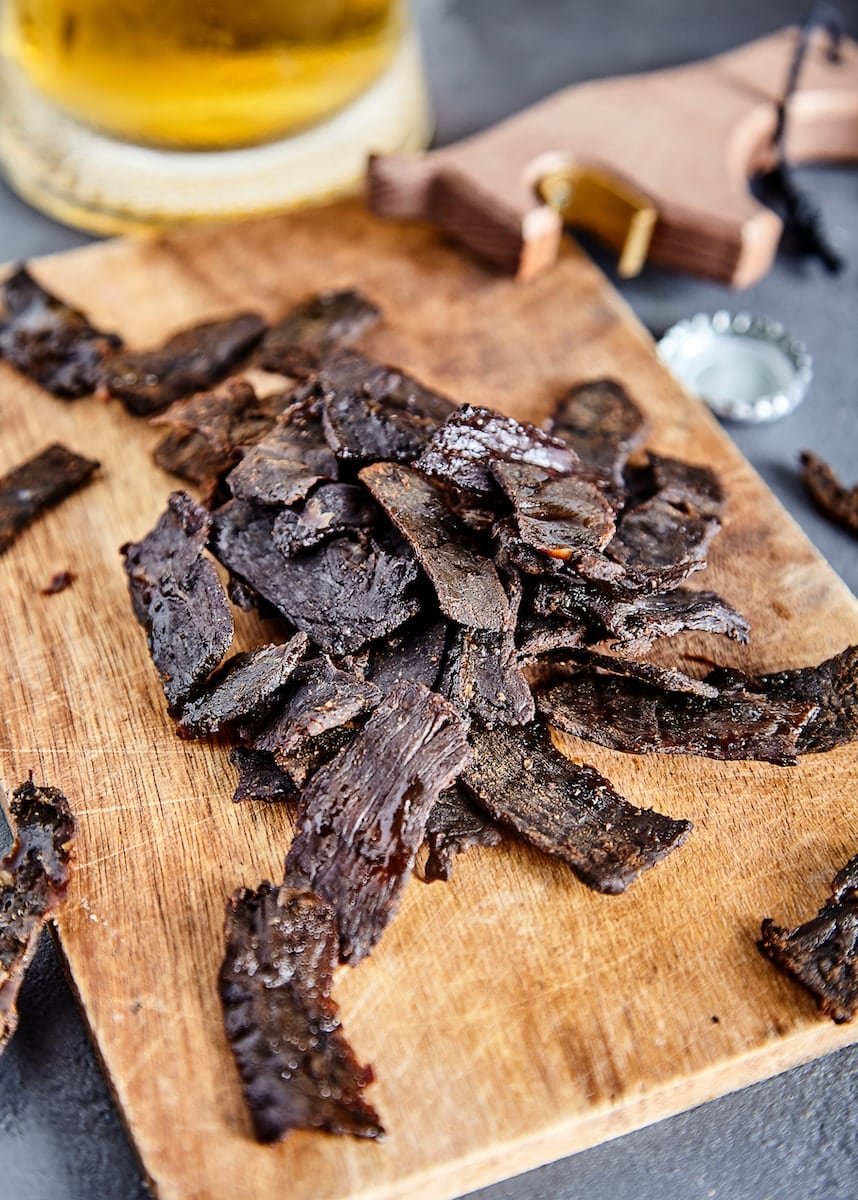Lets chew over a question that I’ve heard many expectant mothers ask: “Can you eat beef jerky while pregnant?”
Now, I know cravings can be quite the roller coaster during pregnancy, and sometimes you just want that savory, chewy goodness of a piece of beef jerky. But as with everything when you’re carrying a little one, it’s crucial to consider safety first. So, let’s dive into whether beef jerky is a safe snack for those with a bun in the oven.
Beef jerky is a popular snack made by drying seasoned beef. This process reduces the moisture content of the meat, making it less hospitable for bacteria to grow, hence increasing its shelf life. However, the key issue with beef jerky and pregnancy involves the potential presence of harmful bacteria like Listeria, E. coli, and Salmonella.
According to the Centers for Disease Control and Prevention (CDC), pregnant women are about 10 times more likely to get listeriosis, a serious infection caused by eating food contaminated with the bacteria Listeria monocytogenes. And even worse, the infection can lead to miscarriage, stillbirth, or severe illness in newborns.
The Food and Drug Administration (FDA) has guidelines and regulations in place for the production of dried meats, including beef jerky. These guidelines are designed to minimize the risk of bacterial contamination. However, no process is foolproof, and there have been recalls of beef jerky products in the past due to contamination.
You might be thinking, “What about homemade beef jerky?” Well, the risk can potentially be higher with homemade versions. Commercial producers often use special heating and drying processes that are difficult to replicate at home. These processes are more controlled and designed to kill off more bacteria.
Store-bought jerky, particularly from reputable brands, is more likely to have been produced with strict adherence to food safety regulations.
So here’s the deal: the safest course of action is to avoid beef jerky during pregnancy.
If you’re looking for that jerky experience without the risk, there are alternatives:
We Food Safety Dads and Moms know the importance of keeping our cravings in check with the health of our little ones in mind. While beef jerky isn’t the safest snack during pregnancy due to the risk of bacterial contamination.
Remember, when in doubt, it’s always best to consult with your healthcare provider about what’s safe to eat during your pregnancy. They can provide personalized advice based on your health and the latest food safety guidelines.


